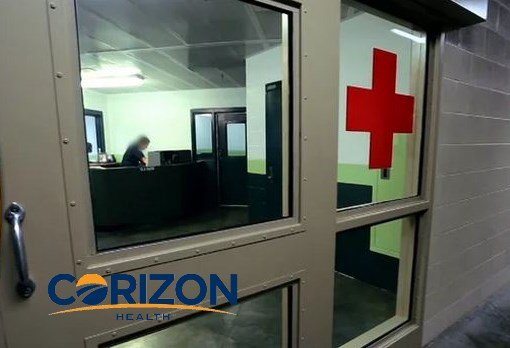Labor & Economy
Cruel and Unusual Punishment: Private Correctional Health Care

Two court orders and the most expensive wrongful death settlement in California history should be enough. But not for Corizon, a corrections health care company owned by a private equity firm.
For seven months earlier this year, Mario Martinez, a prisoner in Corizon’s care at the Dublin, California Santa Rita Jail, suffered from asthma that kept getting worse. A judge issued two court orders requiring the company to provide Mario urgently needed surgery, but they didn’t operate. While Mario suffered, Corizon even settled a lawsuit for $8.3 million with the family of a prisoner who, five years earlier at the same jail, had died in the company’s care.
In July, Mario suffered an asthma attack, collapsed in his cell and died.
Mario’s mother, Tanti Martinez, had hoped to bring her son’s story to Pope Francis, who on Sunday visited a Philadelphia jail that also contracts with Corizon. Tanti said about Mario, “He was a father, a son, a brother, a human being. And, they let him die.”
The Pope has said, “The goal of economics and politics is to serve humanity, beginning with the poorest and most vulnerable wherever they may be.”
Our criminal justice system is a striking example of the reverse. Private corrections companies like Corizon make up a multibillion-dollar industry, and many have glaring track records of providing low-quality services that harm prisoners, communities and taxpayers.
The Philadelphia jail the Pope visited also contracts with Aramark, a food service corporation that recently had its contract with the state of Michigan canceled after maggots were found in food. JPay, GTL and Keefe Group—three companies with histories of overcharging prisoners for such services as phone calls and basic supplies—also operate at the jail.
After Tanti’s visit to Philadelphia, faith groups and advocates will kick off a nationwide effort to act on the Pope’s messages about inequality and criminal justice, asking county officials and state legislators to end for-profit contracting in their local jails and prisons. And over the coming months, In the Public Interest will release a series of briefs and media on ways private prison profits could be redirected towards programs for mental health care, education and job training.
The Pope is right: “Money and other political and economic means must serve, not rule.”

-

 The SlickJanuary 27, 2026
The SlickJanuary 27, 2026The One Big Beautiful Prediction: The Energy Transition Is Still Alive
-

 Column - State of InequalityJanuary 29, 2026
Column - State of InequalityJanuary 29, 2026Are California’s Billionaires Crying Wolf?
-

 Latest NewsFebruary 3, 2026
Latest NewsFebruary 3, 2026Amid the Violent Minnesota Raids, ICE Arrests Over 100 Refugees, Ships Many to Texas
-

 Dirty MoneyJanuary 30, 2026
Dirty MoneyJanuary 30, 2026Amid Climate Crisis, Insurers’ Increased Use of AI Raises Concern For Policyholders
-

 Featured VideoFebruary 4, 2026
Featured VideoFebruary 4, 2026Protesters Turn to Economic Disruption to Fight ICE
-

 The SlickFebruary 2, 2026
The SlickFebruary 2, 2026Colorado May Ask Big Oil to Leave Millions of Dollars in the Ground
-

 Column - State of InequalityFebruary 5, 2026
Column - State of InequalityFebruary 5, 2026Lawsuits Push Back on Trump’s Attack on Child Care
-

 Column - California UncoveredFebruary 6, 2026
Column - California UncoveredFebruary 6, 2026What It’s Like On the Front Line as Health Care Cuts Start to Hit

